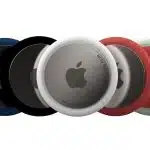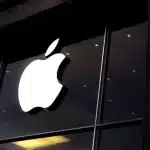Apple is gearing up to end its decades-long relationship with Nvidia as it pushes toward developing its own AI processors. This marks another pivotal shift for Apple, which previously moved away from Intel processors with the launch of its M1 chip in 2020.
The Push for In-House AI Chips
Currently, Apple does not directly purchase Nvidia chips but rents access through cloud services provided by Amazon and Microsoft. However, the company is reportedly partnering with Broadcom to design its own AI server chips. This new processor, rumored to be codenamed “Baltra,” is expected to launch in 2026 and will be manufactured by TSMC using advanced technology.

This move is part of Apple’s broader strategy to strengthen its autonomy in key technology areas, further reducing reliance on external suppliers. Nvidia dominates the AI chip market, holding an estimated 70% to 95% market share. Despite its leading position, Apple’s dissatisfaction with Nvidia’s energy-inefficient chips and other technical issues has strained their relationship over the years.
A History of Clashes
The tension between Apple and Nvidia dates back to the early 2000s when the companies collaborated on Mac graphics chips. The partnership soured further in 2008 during the “Bumpgate” scandal, where faulty Nvidia chips caused widespread hardware issues. Over time, Apple transitioned to using AMD chips for its Macs and later developed its proprietary Apple Silicon.
In 2019, Apple stopped supporting Nvidia drivers for macOS, limiting compatibility with modern Nvidia cards. The decision to sever ties was driven by senior Apple executives, although Nvidia reportedly remains open to collaboration.
What This Means for Apple’s Future
By focusing on in-house development, Apple aims to gain full control over its AI capabilities while potentially cutting costs in the long term. With its upcoming AI processor, the company is set to challenge Nvidia’s market dominance and strengthen its ecosystem.
This strategic move reflects Apple’s commitment to innovation and independence, signaling a transformative step in its approach to AI technology. As the tech landscape evolves, all eyes remain on Apple’s next major announcement.












